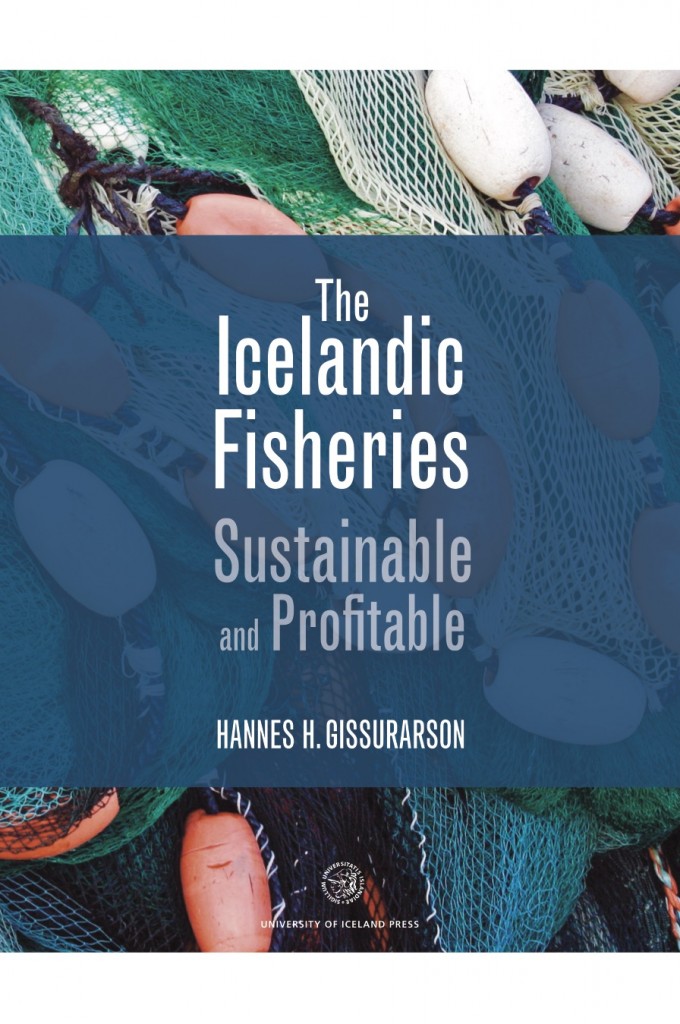 The University of Iceland Press recently published a book by Professor Hannes H. Gissurarson, The Icelandic Fisheries: Sustainable and Profitable, containing four papers which the author has published in English on the most beneficial utilisation of natural resources such as fish stocks. In the introduction Professor Gissurarson recalls the derision with which his suggestion met, at a 1980 conference about the future in Thingvellir, Iceland, that individual and transferable fishing rights should be allocated to fishing firms to solve the problem of overfishing. Still a university student, he published an article in the Journal of Economic Affairs in 1983, arguing further for this idea. The relatively successful Icelandic system of individual transferable quotas in the fisheries had however not been formed in the minds of any scholars: It had developed in a process of trial and error where those with an economic interest in the matter had groped their way towards an efficient solution.
The University of Iceland Press recently published a book by Professor Hannes H. Gissurarson, The Icelandic Fisheries: Sustainable and Profitable, containing four papers which the author has published in English on the most beneficial utilisation of natural resources such as fish stocks. In the introduction Professor Gissurarson recalls the derision with which his suggestion met, at a 1980 conference about the future in Thingvellir, Iceland, that individual and transferable fishing rights should be allocated to fishing firms to solve the problem of overfishing. Still a university student, he published an article in the Journal of Economic Affairs in 1983, arguing further for this idea. The relatively successful Icelandic system of individual transferable quotas in the fisheries had however not been formed in the minds of any scholars: It had developed in a process of trial and error where those with an economic interest in the matter had groped their way towards an efficient solution.
In the introduction, Professor Gissurarson says that three important points are now more clear to him than when he started to think about this problem. First, overfishing is a case of government failure, not market failure. It is caused by the neglect of government to perform its proper task of developing a framework of rules under which individuals would not collide with one another—would not impose harm on one another. In the second place, any major change in the rules applying to an economic sector, such as in this case confining harvesting to holders of fishing permits only, should be Pareto-optimal if possible, which implies that most or all would benefit from the change, while no-one would be made worse-off by it. Initial allocation of fishing permits fulfils this condition, but not an allocation in a government auction. Thirdly, it can be deduced from the analysis of fisheries economists (such as Jens Warming and H. S. Gordon) that the right of which others than the holders of fishing permits under such a system was deprived, was essentially only a right to harvest fish at zero profit, and such a right was, by definition, worthless.
 The papers in the book are, 1) Agreeing on the Rules, 2) Non-Exclusive Resources and the Rights of Exclusion, 3) Objections to Individual Transferable Quotas, and 4) The Politics of Property Rights. Professor Gissurarson argues that the disagreements in Iceland about the fisheries can be related to the different views of Locke on the one hand and Marx (and perhaps Henry George) on the other hand on the legitimacy of private property rights, and to the different approaches of Coase on the one hand and Pigou on the other hand to the economic problem of external harm. The publication of the book forms a part of the joint project by RNH and AECR the Alliance of European Conservatives and Reformists, on “Europe, Iceland and the Future of Capitalism”. It is also a fruit of the cooperation betweeen RNH and IDDE, Institute for Direct Democracy in Europe. The book is freely available online as well as on paper.
The papers in the book are, 1) Agreeing on the Rules, 2) Non-Exclusive Resources and the Rights of Exclusion, 3) Objections to Individual Transferable Quotas, and 4) The Politics of Property Rights. Professor Gissurarson argues that the disagreements in Iceland about the fisheries can be related to the different views of Locke on the one hand and Marx (and perhaps Henry George) on the other hand on the legitimacy of private property rights, and to the different approaches of Coase on the one hand and Pigou on the other hand to the economic problem of external harm. The publication of the book forms a part of the joint project by RNH and AECR the Alliance of European Conservatives and Reformists, on “Europe, Iceland and the Future of Capitalism”. It is also a fruit of the cooperation betweeen RNH and IDDE, Institute for Direct Democracy in Europe. The book is freely available online as well as on paper.


